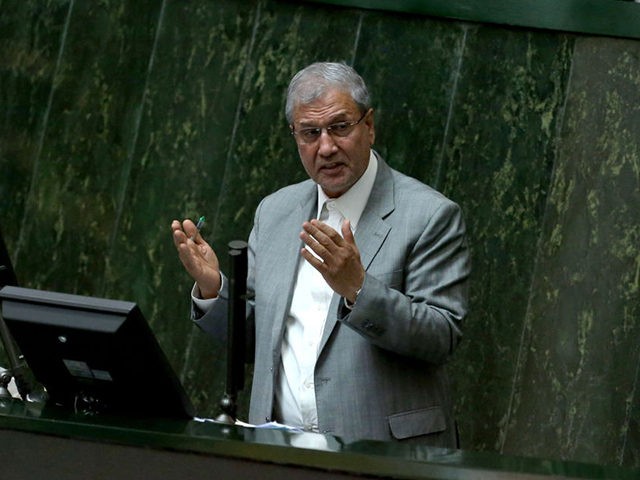
A spokesman for the Iranian government said on Tuesday that foreign companies are already inquiring about the possibility of doing business in Iran again after the Biden administration returns to the nuclear deal and lifts sanctions imposed by President Donald Trump.
“Recently, contacts about opening offices and the presence of foreign companies in Iran have increased,” government spokesman Ali Rabiei said at a news conference, as quoted by Reuters on Tuesday.
“Certainly, with the … lifting of the oppressive sanctions and the absence of Trump, the presence of foreign companies and a willingness to invest in Iran will increase,” Rabiei said.
Reuters quoted some skepticism about these claims from a European diplomat who said that even if sanctions are lifted, foreign corporations will remain uneasy about doing business in “a market with so little financial transparency.”
The Trump administration took more steps to increase sanctions pressure on Iran last week, as Secretary of State Mike Pompeo extended a sanctions waiver for Iraq to buy Iranian energy products for only 45 days. The waivers were originally issued for 120 days, then reduced to 60 over the summer. The 45-day extension means the Trump administration will have a final opportunity to either extend the waiver again or terminate it entirely in January.
The administration seeks to encourage Iraq to reduce its dependency on Iranian energy imports, and simultaneously reduce Tehran’s political influence in Iraq, particularly the influence it exerts through Shiite militia groups growing increasingly brazen about attacking the U.S. presence in Iraq.
Last week, the Trump administration also blacklisted the Islamic Revolution Mostazafan Foundation, an entity controlled by Iranian Supreme Leader Ayatollah Ali Khamenei, and leveled sanctions against Iranian Minister of Intelligence and Security Mahmoud Alavi.
The New York Times (NYT) posited last week that Trump will use his lame-duck months to “increase American sanctions against Iran and sell advanced weapons to its regional enemies,” making it harder for the Biden administration to rejoin the nuclear deal or fully reverse Trump’s Middle Eastern policies.
The NYT suggested Iran might also make it hard for Biden to return to the nuclear deal by making demands even Biden would hesitate to fulfill, such as insisting the United States compensate Iran for all of the financial damage it suffered during Trump’s sanctions.
Secretary of State Pompeo warned last Wednesday that removing sanctions from Iran would be a “dangerous choice” that could “weaken new partnerships for peace in the region and strengthen only the Islamic Republic.”
Pompeo described the Trump administration’s Iran policy as “extraordinarily effective” and promised more sanctions would take effect in the weeks ahead.
At the moment, Iranian leaders are continuing their years-long game of alternately dismissing Trump’s sanctions as irrelevant against the strength and determination of the Islamic Republic, and whining that all of Iran’s many economic and social problems are due to the sanctions. Reuters quoted Ayatollah Khamenei claiming in a Tuesday television interview that he doesn’t really care if Biden returns to the nuclear deal.
“We once tried the path of having the sanctions lifted and negotiated several years, but this got us nowhere,” Khamenei grumbled. “[Western nations] interfere in regional affairs, they tell us not to intervene. And while Britain and France have nuclear missiles, they tell us not to have missiles.”
“What does it have to do with you? You should first correct yourselves,” Khamenei said to the U.S. and Europe.
